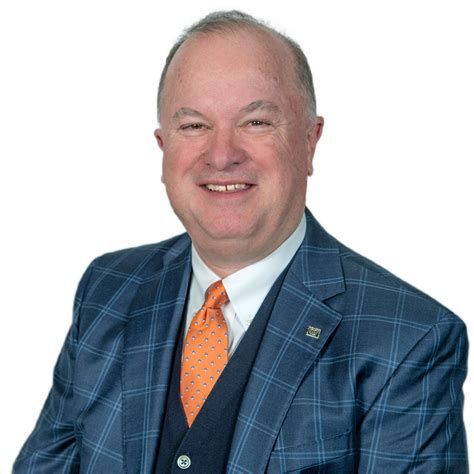What I Learned at the "Other" Berkshire Meeting
The Markel Omaha Brunch is a tradition the day after the Berkshire Hathaway Annual General Meeting.
The brunch is held at the Marriott Downtown.
Just down the road from the chaos of the CHI Health Center, where people sleep on sidewalks to get front-row seats for Buffett.
A Baby Berkshire With Better Coffee
At the Markel brunch, no one camped overnight.
No one had See’s Candy or Coke.
They served breakfast sandwiches. Fruit. Croissants.
And most importantly - coffee.
(Although I’ll admit… I was late through the line. The real stuff was gone. I had to settle for decaf.)
Still, it was a huge step up from the coffee at the hotel I stayed in. I was a true value investor and stayed about a 15 minute drive from downtown. The room was fine, but the free lobby coffee was a chemical weapon. I dumped the first cup out of the car window on the way out of the parking lot and never touched it again.
Who Is Markel?
If you’re not familiar, Markel Corporation is often called a “Baby Berkshire.”
They sell specialty insurance - for things you wouldn’t even think about.
Cargo ships in the Red Sea.
Vintage Ferraris in Miami.
They take the premiums… invest the float… and grow wealth long-term.
Sound familiar?
Who’s Tom Gayner?
Berkshire has (had?) Buffett.
Markel has Tom Gayner.
He’s the CEO of Markel and runs it like a man who’s read every single Berkshire annual letter - twice.
He doesn’t chase trends. He doesn’t time the market. He doesn’t care what CNBC says.
He just allocates capital for the long-term.
The Event
The Capitol Ballroom was full. Packed, actually.
I stood near the back. Lots of people couldn’t even get in and ended up watching the livestream in overflow areas.
It started with an overview of the business and some updates.
And I noticed something I rarely see in corporate America.
Honesty.
They admitted their insurance business wasn’t where it should be.
They introduced Simon Wilson - the new CEO of the insurance division.
And instead of giving us a sales pitch, he gave us a postmortem.
What went wrong. Why it happened. And what he’s doing to fix it.
No spin. No fluff.
Just the facts.
Q&A
I did write a thread on X while I was listening to Tom Gayner and the management team answer questions.
It helped share what I was learning and gave me notes to expand on in this article.
Growth vs Value vs Dividend Stocks
Tom Gayner was asked about investing in growth, value, or dividend stocks.
He rejected this framing right away - “I don’t like to label stocks, the same way I don’t like to label people. I look at the intrinsic qualities instead.”
Gayner focuses on the fundamentals of a business rather than fitting it into predefined categories.
That’s the whole ballgame.
What matters isn’t the category of the stock.
What matters is whether the business can allocate capital productively - and compound wealth over time.
The Best Companies Do Four Things
Reinvest in the business.
Make smart acquisitions.
Buy back stock when it makes sense.
Pay a dividend - because owners deserve returns.
That’s it. That’s the playbook.
Forget fancy charts. Forget momentum. Forget hot tips from your Uber driver.
If a business does those four things, the stock takes care of itself.
Passive Investing: Will the Easy Button Keep Working?
Gayner was asked the rise of passive investing.
He acknowledged that hitting the “easy button” by investing in index funds like the S&P 500 has worked well for years.
However, he urged the audience to ask a critical question: Why has this strategy worked, and will it continue to do so?
While the S&P 500 may continue its strong performance, the concentration and high valuation relative to history mean that it might not.
Relative vs Absolute Performance
He also talked about the popularity of the S&P as a benchmark, and if that’s the right thing to focus on .
He posed a hypothetical question to the audience:
“Would you rather earn 10% per year for the next decade…
Or beat the S&P 500 by 2% each year?”
Everyone says they want to beat the market.
But depending on how the market does, you’d probably be much richer just compounding at 10%.
Absolute returns matter more than relative returns.
And the irony?
Most money managers are incentivized to chase relative performance, even though that often kills both.
Buying Public vs Private Businesses
Markel’s team talked about how they invest money.
They look at public companies (on the stock market) and private businesses the same way.
They want businesses that are:
High quality
Able to grow
A good fit with Markel’s culture
Tom said they don’t try to change the culture of the businesses they buy.
They look for ones that already share Markel’s values.
Tackling Complex Problems and Thinking Long-Term
The Q&A also touched on broader topics, including how to approach complex problems in investing and life.
Gayner’s advice:
Admit when you don’t know, then-
Either invert the problem, or break it down into smaller parts
Simon Wilson talked about insuring complex risks.
Markel builds expertise in specific areas, then stays within those areas.
Gayner and Wilson both focused on humility.
They stay in their circle of competence.
They ask better questions.
And they think in decades — not quarters.
“We don’t mind some volatility,” Gayner said.
“We care about where the business is in five or ten years.”
See the whole meeting here:
3 Great Ideas From Gayner’s Portfolio
Now that we’ve reviewed the event and learned a little about Tom Gayner, let’s look at his portfolio and see if we can generate any ideas from him!







